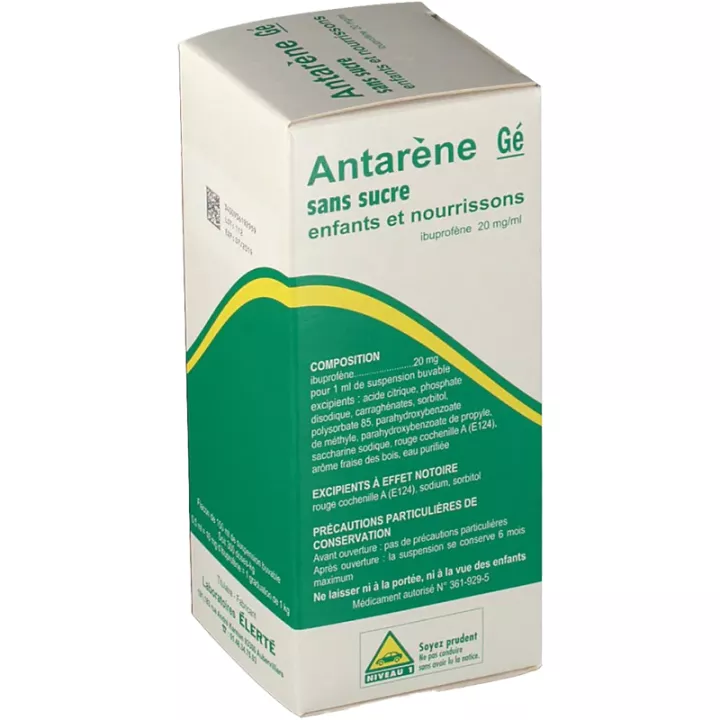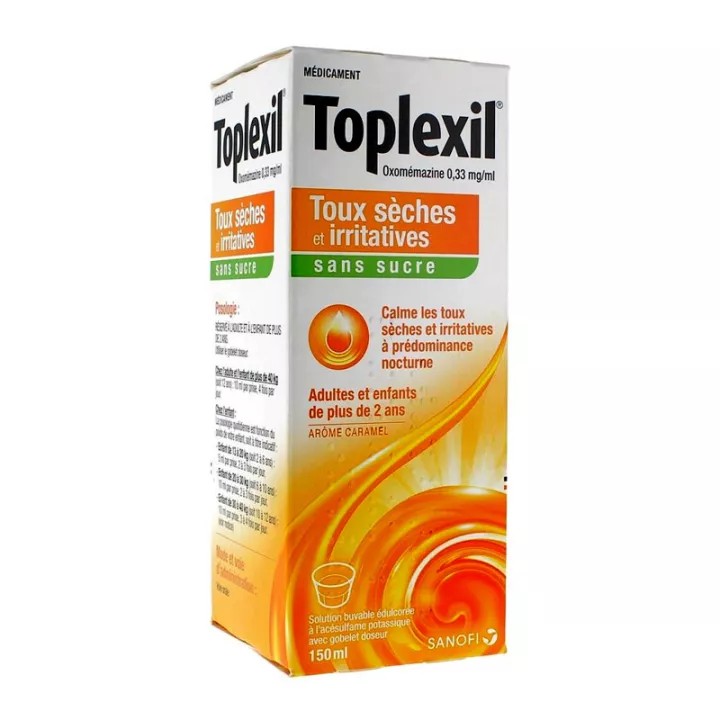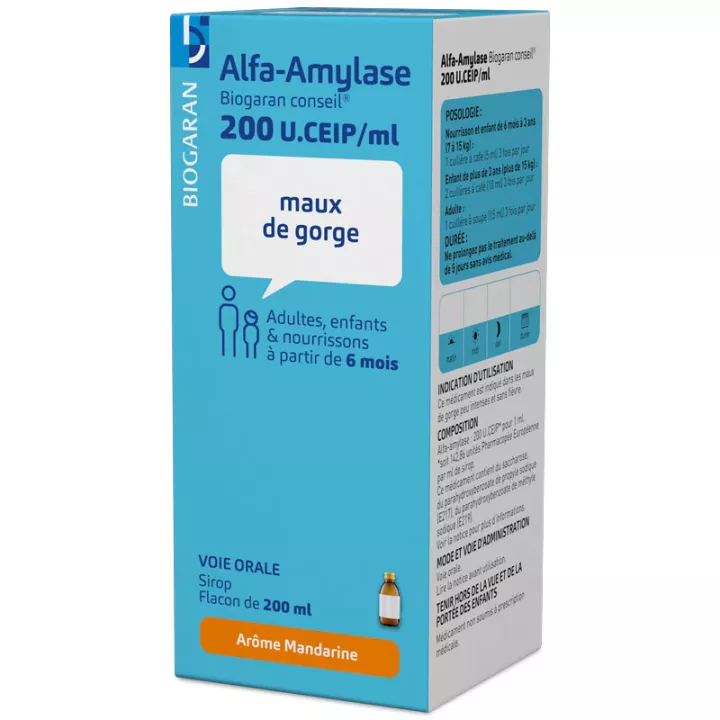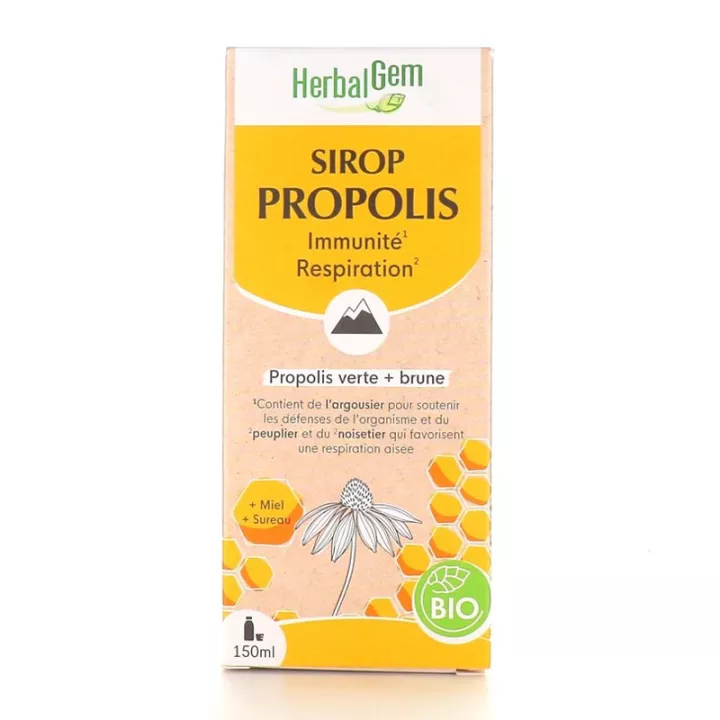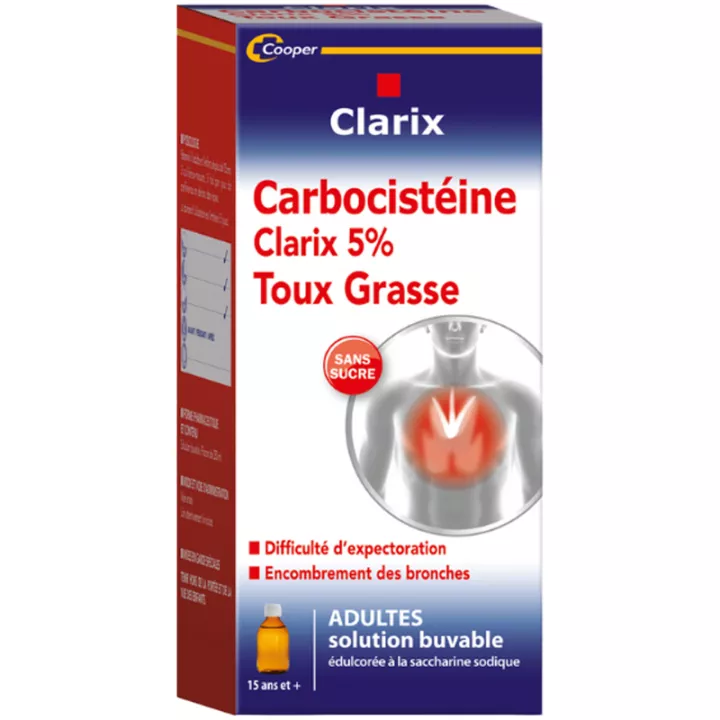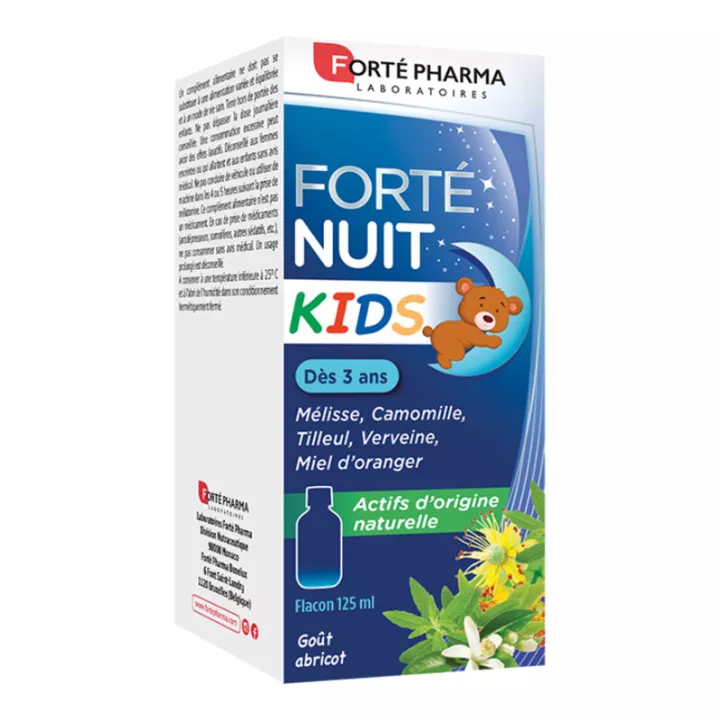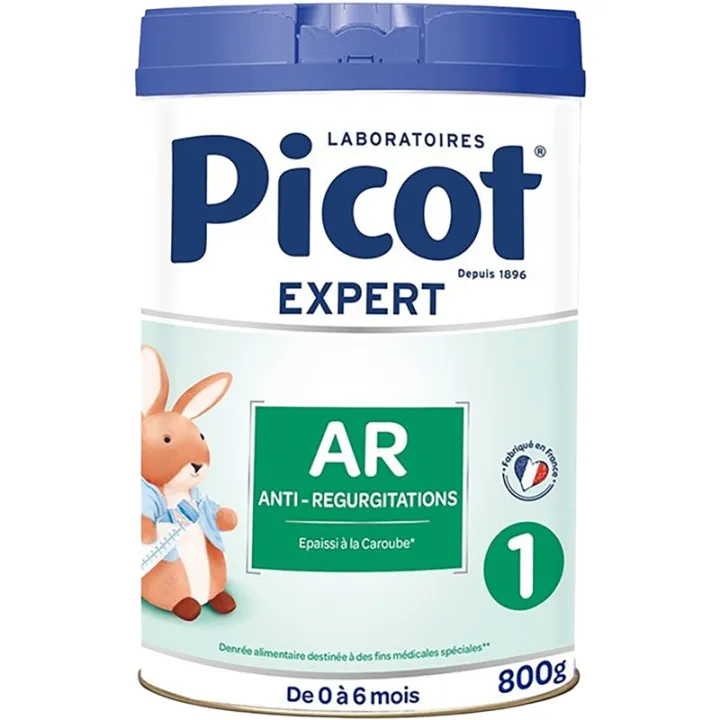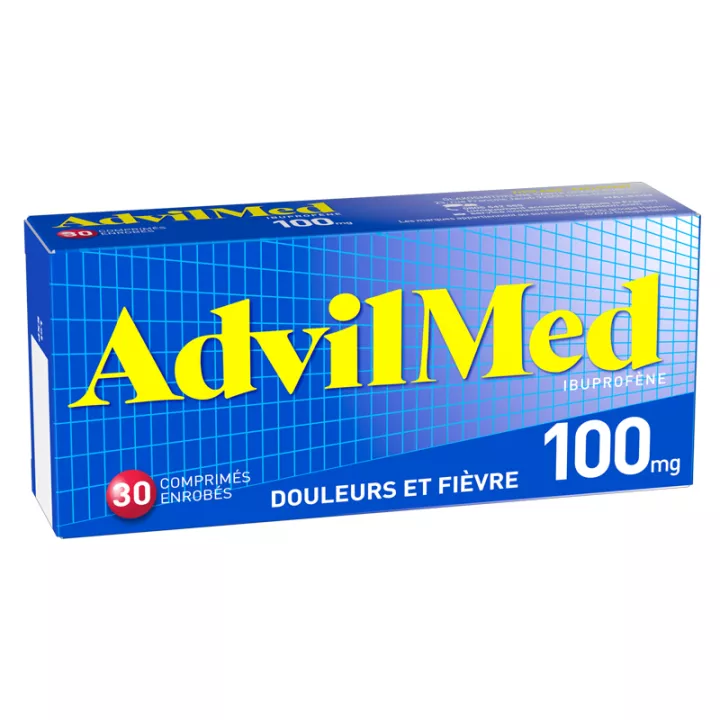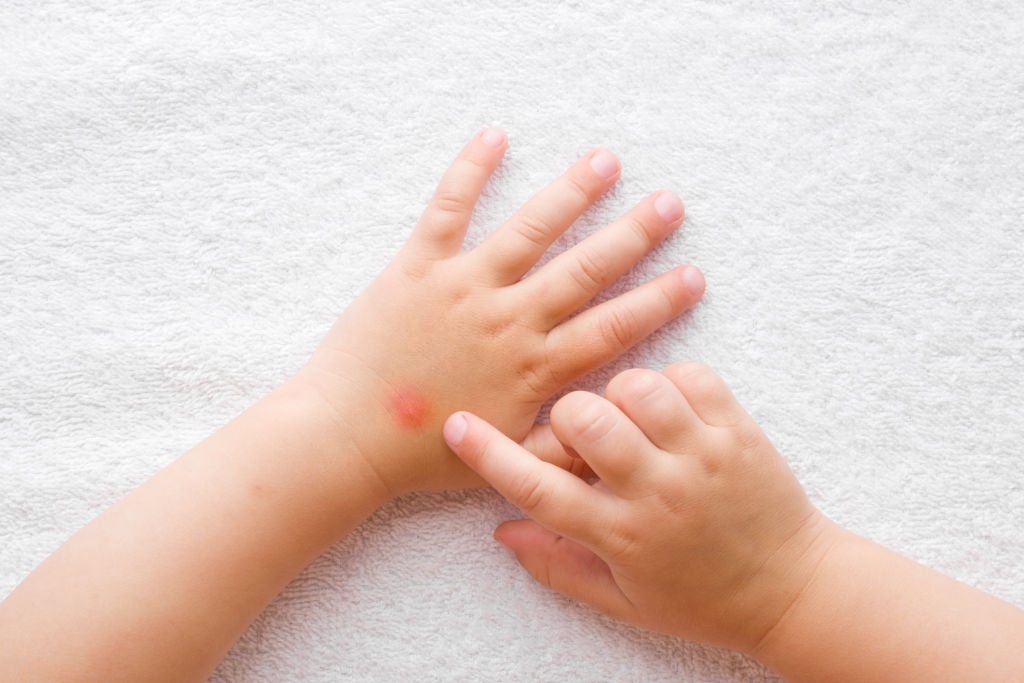NOTICE
ANSM - Last updated: 28/11/2011
Name of the medicinal product
ANTARENE 20 mg / ml INFANTS AND CHILDREN, oral suspension
Ibuprofen
framed
Read this leaflet carefully before you start taking this medicine. It contains important information for your treatment.
· This medication can be used in self-medication, ie used without consultation or prescription from a doctor.
· If symptoms persist, worsen or new symptoms appear, seek advice from your pharmacist or doctor.
· This leaflet is designed to help you use this medicine. Keep it, you may need to reread it.
DO NOT LEAVE THIS MEDICINE FOR CHILDREN.
Review summary
In this notice :
1. WHAT IS ANTARENE 20 mg / ml INFANTS AND CHILDREN, oral suspension AND WHAT IT IS USED FOR?
2. BEFORE YOU TAKE ANTARENE 20 mg / ml INFANTS AND CHILDREN, oral suspension?
3. HOW TO TAKE ANTARENE 20 mg / ml INFANTS AND CHILDREN, oral suspension?
4. WHAT ARE POSSIBLE SIDE EFFECTS?
5. HOW TO STORE ANTARENE 20 mg / ml INFANTS AND CHILDREN, oral suspension?
6. ADDITIONAL INFORMATION
1. WHAT IS ANTARENE 20 mg / ml INFANTS AND CHILDREN, oral suspension AND WHAT IT IS USED FOR?
Pharmacotherapeutic group
ANALGESIC AND ANTIPYRETIC
Therapeutic indications
This medicine contains ibuprofen. It is indicated in infants and children from 3 months to 12 years (approximately 30 kg) in:
· the treatment of fever and / or pain such as headaches, flu-like conditions, dental pain, body aches,
· chronic juvenile arthritis.
2. BEFORE YOU TAKE ANTARENE 20 mg / ml INFANTS AND CHILDREN, oral suspension?
List of information needed before taking the medication
If your doctor has told you about an intolerance to some sugars, contact your doctor before taking this medicine.
Cons-indications
Do not take ANTARENE 20 mg / ml INFANTS AND CHILDREN, drinkable suspension in the following cases:
· after 5 months of pregnancy (24 weeks of amenorrhea),
· a history of allergy or asthma triggered by the use of this drug or a related drug, including other non-steroidal anti-inflammatory drugs, acetylsalicylic acid (aspirin),
· history of allergy to other constituents of oral suspension,
· history of gastrointestinal bleeding or ulcers associated with previous NSAID treatments,
· ulceration or bleeding of the stomach or intestine in progress or recurrence,
· gastrointestinal haemorrhage, cerebral hemorrhage or other ongoing hemorrhage,
· severe liver disease,
· severe kidney disease,
· serious heart disease,
· systemic lupus erythematosus.
IN CASE OF DOUBT, IT IS ESSENTIAL TO ASK FOR THE OPINION OF YOUR DOCTOR OR YOUR PHARMACIST.
Precautions for use; special warnings
Take special care with ANTARENE 20 mg / ml INFANTS AND CHILDREN, oral suspension:
In high doses, greater than 1200 mg / day, this drug has anti-inflammatory properties and can cause serious disadvantages that are observed with non-steroidal anti-inflammatory drugs.
Drugs such as ANTARENE 20 mg / ml INFANTS AND CHILDREN, oral suspension may increase the risk of heart attack ("myocardial infarction") or stroke. The higher the dose, the longer the treatment time, the greater the risk.
Do not exceed recommended dosage or treatment time.
If you have heart problems, have had a stroke, or if you think you have risk factors for this type of illness (eg high blood pressure, diabetes, high cholesterol, or please contact your doctor or pharmacist.
Special warnings
If you are a woman, ANTARENE 20 mg / ml INFANTS AND CHILDREN, oral suspension can alter your fertility. Its use is not recommended in women who wish to conceive a child. In women with reproductive difficulties or in which breast function tests are ongoing, please talk to your doctor or pharmacist before taking ANTARENE 20 mg / ml INFANTS AND CHILDREN, drinkable suspension.
Elderly patients have a higher risk of adverse effects, particularly for gastrointestinal haemorrhage, ulcers and perforations. Renal, hepatic and cardiac functions should be closely monitored. The dosage should be as low as possible for the shortest time needed to relieve symptoms.
This medicine contains an azo dye (E124) and may cause allergic reactions.
The use of this medication is not recommended in patients with fructose intolerance (rare hereditary disease).
This medicine contains sodium. This medicine contains 1.50 mg sodium per ml oral suspension. To be taken into account in patients controlling their sodium dietary intake.
BEFORE YOU USE THIS MEDICINE, CONSULT YOUR DOCTOR IN CASE:
· a history of asthma associated with chronic rhinitis, chronic sinusitis or polyps in the nose. The administration of this specialty may lead to an asthma attack, especially in certain people who are allergic to acetylsalicylic acid (aspirin) or to a non-steroidal anti-inflammatory drug ( see section "Do not take ANTARENE 20 mg / ml INFANTS AND CHILDREN , drinkable suspension in the following cases " ).
· coagulation disorders, and anticoagulant therapy. This medicine may cause severe gastrointestinal symptoms.
· digestive antecedents (hiatal hernia, digestive hemorrhage, old stomach or duodenal ulcer),
· heart disease, liver or kidney disease,
· of varicella. This medication is not recommended because of exceptional severe infections of the skin.
· concomitant therapy with other drugs that increase the risk of peptic ulcer or haemorrhage, eg oral corticosteroids, antidepressants (SSRIs, ie Selective Serotonin Recapture Inhibitors), medicines preventing the formation of blood clots such as aspirin or anticoagulants such as warfarin. If you are in any of these conditions, talk to your doctor before taking ANTARENE 20 mg / ml INFANTS AND CHILDREN, drinkable suspension ( see section "Take or use other medicines" ),
· concomitant therapy with methotrexate at doses greater than 20 mg per week or with pemetrexed ( see section "Take or use other medicinal products" ).
DURING TREATMENT, IN CASE OF:
· of vision problems, PREVENT YOUR DOCTOR,
· gastrointestinal haemorrhage (discharge from the mouth or stool, stool coloration in black), STOP TREATMENT AND IMMEDIATELY CONTACT AN EMERGENCY MEDICAL OR MEDICAL SERVICE,
· of appearances of cutaneous or mucosal signs that resemble a burn (redness with bubbles or blisters, ulcerations), STOP THE TREATMENT AND CONTACT IMMEDIATELY A DOCTOR OR AN EMERGENCY MEDICAL SERVICE,
· of allergy-related signs including asthma attack or abrupt swelling of the face and neck ( see section 4. "WHAT ARE POSSIBLE SIDE EFFECTS?" ), STOP TREATMENT AND CONTACT IMMEDIATELY A DOCTOR OR EMERGENCY MEDICAL SERVICE.
|
This medicine contains a non-steroidal anti-inflammatory drug: ibuprofen.
You should not take other medicines containing non-steroidal anti-inflammatory drugs (including selective cyclooxygenase 2 inhibitors) and / or acetylsalicylic acid (aspirin) at the same time as this medication.
Read the leaflets carefully for other medicines you are taking to ensure that there are no nonsteroidal anti-inflammatory drugs and / or acetylsalicylic acid (aspirin).
|
Interaction with other medicines
Taking or using other medicines:
PLEASE INDICATE YOUR DOCTOR OR YOUR PHARMACIST IF YOU TAKE OR RECENTLY TAKE ANY OTHER MEDICINE, EVEN IF ANY MEDICINE IS OBTAINED WITHOUT ORDER.
CERTAIN MEDICINAL PRODUCTS MAY NOT BE USED AT THE SAME TIME, WHILE OTHER MEDICINES REQUIRE SPECIFIC CHANGES (DOSE, FOR EXAMPLE).
Always tell your doctor, dentist or pharmacist if you are taking any of the following medicines in addition to ANTARENE 20 mg / ml INFANTS AND CHILDREN, oral suspension:
· aspirin (acetylsalicylic acid) or other non-steroidal anti-inflammatory drugs
· corticosteroids
· oral anticoagulants such as warfarin, injectable heparin, antiplatelet agents or other thrombolytics such as ticlopidine
· lithium
· methotrexate
· angiotensin converting enzyme inhibitors, diuretics, beta-blockers and angiotensin II antagonists
· some antidepressants (selective serotonin reuptake inhibitors)
· pemetrexed
· ciclosporin, tacrolimus.
Interactions with food and beverages
Not applicable.
Interactions with Herbal Medicines or Alternative Therapies
Not applicable.
Use during pregnancy and lactation
Pregnancy and breast feeding
ASK YOUR DOCTOR OR YOUR PHARMACIST BEFORE TAKING ALL MEDICINAL PRODUCTS.
This medication is for infants and children. However, when used in exceptional circumstances by a woman likely to be pregnant, the following points should be recalled:
Pregnancy
During the first trimester (12 weeks of gestation is 12 weeks after the 1st day of your last period), your doctor may, if necessary, to prescribe the drug.
For 2.5 to 5 months of pregnancy (12 to 24 weeks of amenorrhea), this medication will only be used on the advice of your doctor and in brief dosage. Prolonged use of this medication is strongly discouraged.
You should NOT take this medication if you have had more than 5 months of pregnancy (beyond 24 weeks of amenorrhea), as its effects on your child can have serious consequences, especially on the cardiopulmonary and renal plane, even with a single plug.
If you are taking this medication when you are more than five months pregnant, please speak to your obstetrician gynecologist for appropriate monitoring.
feeding
This drug passes into breast milk. As a precaution, it should be avoided during breastfeeding.
Sport
Not applicable.
Effects on ability to drive or use machines
Driving and using machines
In rare cases, taking this medicine may cause dizziness and blurred vision.
List of excipients with known effect
List of excipients with known effect: cochineal red A (E124), sodium, sorbitol.
3. HOW TO TAKE ANTARENE 20 mg / ml INFANTS AND CHILDREN, oral suspension?
Instructions for proper use
The occurrence of adverse reactions can be minimized by using the lowest possible dose for the shortest duration necessary to alleviate the symptoms.
Dosage, Mode and / or route (s) of administration, Frequency of administration and Duration of treatment
Reserved for infants and children, from 3 months to 12 years (about 30 kg).
Dosage
· Pain and / or fever : The usual dosage is 20 to 30 mg / kg / day in 3 doses per day (not to exceed 30 mg / kg / day).
Systematic catches, spaced 8 hours apart, avoid peaks of pain or fever.
· Chronic Juvenile Arthritis : The usual dosage is 30 to 40 mg / kg / day in 4 doses per day.
If you feel that the effect of ANTARENE 20 mg / ml INFANTS AND CHILDREN, oral suspension is too strong or too weak: talk to your doctor or pharmacist.
Oral use.
Shake well before use.
Administration mode
This medicinal product is administered by means of the supplied oral syringe (graduated in kg of body weight) which delivers a dose of 10 mg / kg per dose.
IN ALL CASES RESPECT STRICTLY THE ORDER OF YOUR DOCTOR.
DIRECTIONS FOR USE OF SYRINGE FOR ORAL ADMINISTRATION :
The dose to be administered for intake is obtained by aspirating the suspension by pulling the plunger of the syringe for oral administration to the graduation corresponding to the weight of the child.
For each outlet:
· up to 10 kg:
use the 5 ml syringe graduated to 10 kg or the 10 ml syringe graduated up to 20 kg.
· more than 20 kg:
use the 10 ml syringe graduated up to 20 kg,
fill the syringe for the first time up to the 20 kg graduation and then a second time until you reach a total equal to the child's weight.
(example for a child of 30 kg: first fill the syringe up to the graduation 20 kg and then a second time up to 10 kg).
· more than 30 kg (about 12 years): there are more suitable dosage forms.
|
The use of the syringe for oral administration is strictly reserved for the administration of this pediatric suspension of ibuprofen.
|
The syringe for oral administration must be disassembled, rinsed and dried after use.
Duration of the treatment
If the pain persists more than 5 days or the fever more than 3 days, or if they worsen or in the event of another disorder, inform your doctor.
Symptoms and Instructions for Overdose
If you have given more ANTARENE 20 mg / ml INFANTS AND CHILDREN, drinkable suspension you should:
In case of accidental overdose or poisoning, STOP THE TREATMENT AND QUICKLY SEE YOUR DOCTOR.
Instructions for omission of one or more doses
If you forget to give ANTARENE 20 mg / ml INFANTS AND CHILDREN, oral suspension:
Do not give a double dose to make up for the missed dose.
Risk of withdrawal syndrome
Not applicable.
4. WHAT ARE POSSIBLE SIDE EFFECTS?
Description of adverse reactions
Like all medicines, ANTARENE 20 mg / ml INFANTS AND CHILDREN, oral suspension may cause side effects, although not everybody gets them.
Drugs such as ANTARENE 20 mg / ml INFANTS AND CHILDREN, oral suspension may increase the risk of heart attack (myocardial infarction) or stroke.
May cause allergic reactions:
· rash: rash on the skin, itching, edema, aggravation of chronic urticaria,
· respiratory asthma attack type,
· generalized: abrupt swelling of the face and neck with respiratory discomfort (angioedema).
In rare cases, gastrointestinal haemorrhage may occur ( see section "Take special precautions with ANTARENE 20 mg / ml INFANTS AND CHILDREN, oral suspension" ). This is all the more frequent when the dosage used is high.
Exceptionally, there may be headaches accompanied by nausea, vomiting and neck stiffness.
Very rarely, bullous manifestations of the skin or mucous membranes (burning sensation accompanied by redness with bubbles, blisters, ulcerations) may occur.
Exceptionally, severe skin infections have been observed in cases of chicken pox.
In all these cases, you should stop treatment immediately and notify your doctor.
During treatment, there may be:
· digestive disorders: stomach upset, vomiting, nausea, diarrhea, constipation,
· exceptionally: dizziness or headache, rare visual disturbances, significant decrease of urine, renal insufficiency.
In all these cases, you should tell your doctor.
Exceptionally, there have been changes in liver function or blood counts (decreased white blood cells or red blood cells) that may be severe.
If you notice any side effects not listed in this leaflet, please tell your doctor or pharmacist.
5. HOW TO STORE ANTARENE 20 mg / ml INFANTS AND CHILDREN, oral suspension?
Keep out of the reach and sight of children.
Expiration date
Do not use ANTARENE 20 mg / ml INFANTS AND CHILDREN, drinkable suspension after the expiry date stated on the vial.
Storage conditions
Before opening : No special precautions for storage.
After opening : The suspension is kept for a maximum of 6 months.
If necessary, warnings against visible signs of deterioration
Medicines should not be disposed of via wastewater or household waste. Ask your pharmacist what to do with unused medications. These measures will help protect the environment.
6. ADDITIONAL INFORMATION
Full list of active substances and excipients
What does ANTARENE 20 mg / ml contain INFANTS AND CHILDREN, oral suspension?
The active substance is:
Ibuprofen ................................................. .................................................. ...................................... 20 mg
For 1 ml oral suspension.
The other components are:
Citric acid monohydrate, disodium phosphate dodecahydrate, carrageenates, sorbitol, polysorbate 85, methyl parahydroxybenzoate, propyl parahydroxybenzoate, sodium saccharin, cochineal red A (E124), strawberry flavor, purified water.
Pharmaceutical form and content
What is ANTARENE 20 mg / ml INFANTS AND CHILDREN, oral suspension and contents of the pack?
This medication is in the form of a drinkable suspension.
Flask of 125 or 150 ml with syringe for oral administration of 5 ml.
200 ml bottle with syringe for oral administration of 10 ml.
Name and address of the marketing authorization holder and the holder of the manufacturing authorization responsible for the release of the lots, if different
Holder
LABORATORY OF ELERT THERAPEUTIC ACHIEVEMENTS
181-183, ANDRE KARMAN STREET
BP 101
93303 AUBERVILLIERS CEDEX
exploiting
ELERT LABORATORIES
181-183, ANDRE KARMAN STREET
93303 AUBERVILLIERS
Maker
ELERT LABORATORIES
181-183, ANDRE KARMAN STREET
93303 AUBERVILLIERS
Names of the medicinal product in the Member States of the European Economic Area
Not applicable.
Date of approval of the notice
The last date on which this leaflet was approved is {date}.
AMM under exceptional circumstances
Not applicable.
Internet Information
Detailed information on this medicine is available on the Afssaps website (France).
Information for health professionals only
Not applicable.
Other
ADVICE / HEALTH EDUCATION
"WHAT TO DO IN THE EVENT OF FEVER"
The normal temperature of the body is variable from one individual to another and between 36.5 ° C and 37.5 ° C. An increase of more than 0.8 ° C is considered a fever.
· In infants (under 2 years of age):
o Fever can be dangerous:
§ it entails a risk of convulsion if it rises too much and above all too quickly,
§ it causes a risk of dehydration.
o What has to be done:
§ undressing the child (a naked child in a room at 20 ° C risks nothing),
§ often drinking (some children drink very little but very often),
§ possibly, bathe it in water whose temperature is 2 ° C below that of the child,
§ have the person take a fever medication, after ensuring that the medication is appropriate to the infant's weight, in accordance with the indicated doses.
o What you should not do:
§ cover the child, increasing the risk of convulsion and dehydration,
§ put it "on the diet".
o Consult a physician:
In the following hours, if the temperature is raised to more than 38.5 ° C and accompanied by other abnormalities: unusual behavior (screams, crying, drowsiness), vomiting, diarrhea.
· In children over 2 years:
If the disorder is too troublesome, you can give a fever medication, after making sure that the medication is appropriate to the child's weight, according to the doses indicated.
However:
o if there are other signs (such as a rash), or if the temperature persists for more than 3 days or if it gets worse, see a doctor
o if headache becomes violent, in case of vomiting, consult a doctor immediately.
"WHAT TO DO IN CASE OF PAIN"
Consult a physician:
· In the absence of improvement after 5 days of treatment,
· If the pain returns regularly,
· If they are accompanied by fever,
· If they awaken your child at night.

